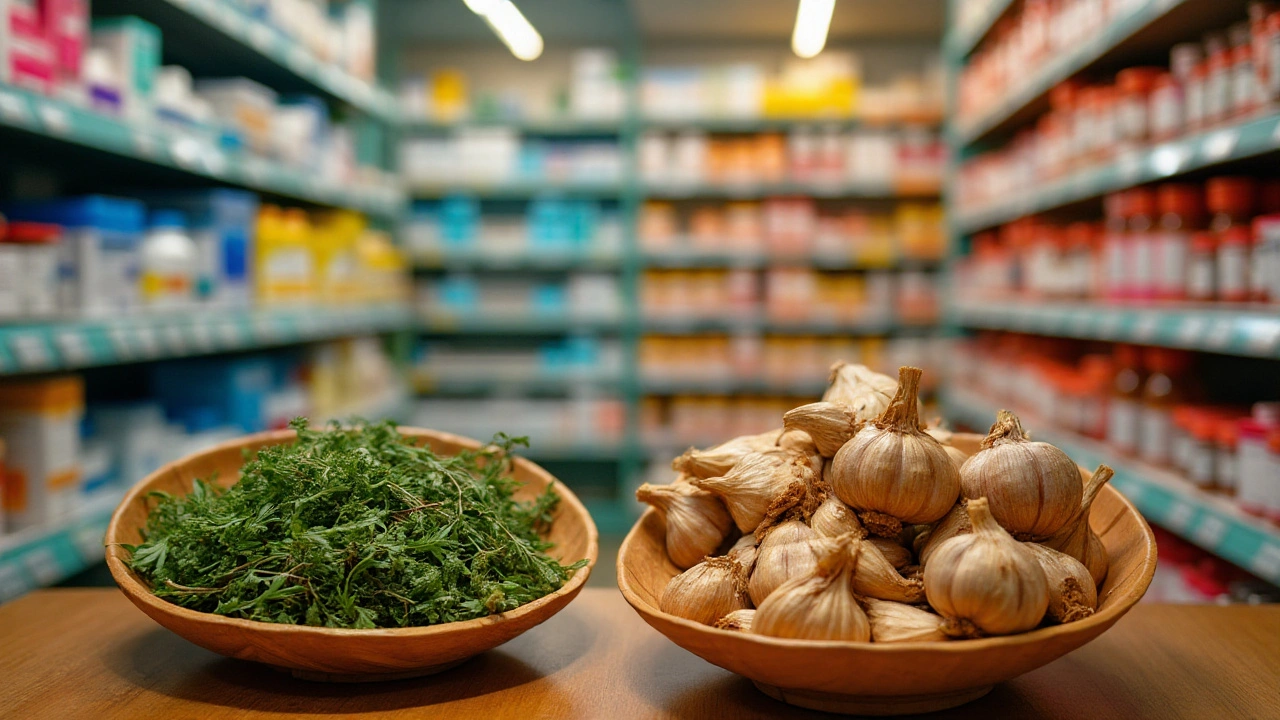If you’re tired of reaching for the same pills every time a cold hits, natural antibiotics might be worth a look. These aren’t lab‑made drugs; they’re compounds found in everyday herbs, spices, and foods that can stop bacteria from growing. Think of them as nature’s own tiny warriors that help your body stay healthy without the side effects of many prescription meds.
Before you stock up on garlic tablets or honey jars, it helps to know what makes a substance an antibiotic. In simple terms, an antibiotic stops microbes from multiplying or kills them outright. Many plants produce these chemicals as a defense against bugs in the soil, and we can borrow that power for our own health.
Here are some of the most talked‑about natural antibiotics you can find at the grocery store or spice rack. Garlic contains allicin, a compound that fights a wide range of bacteria, especially those that cause throat infections. Honey, particularly raw or Manuka honey, has hydrogen peroxide and unique acids that keep germs in check – it’s great for wound care or soothing sore throats.
Echinacea is another favorite; its roots and leaves boost immune response and can curb early‑stage colds. Oregano oil packs carvacrol, a potent antimicrobial that works well against gut bugs and respiratory pathogens. Don’t forget turmeric, whose curcumin reduces inflammation and shows antibacterial activity against skin infections.
If you prefer something to sip, try a brew of green tea. Its catechins have been shown to hinder bacterial growth in the mouth and gut. Even Coconut oil contains lauric acid, which can break down virus envelopes and bacterial walls – a handy addition to cooking or topical use.
Natural antibiotics are great for mild infections, skin scratches, or as a preventive boost. However, they aren’t a cure‑all. If you have a serious bacterial infection – like pneumonia, urinary tract infection, or anything with fever and worsening symptoms – see a doctor fast. Prescription antibiotics act faster and target specific bugs that home remedies might miss.
When using plant‑based options, start with small amounts to see how your body reacts. Some people get stomach upset from oregano oil or allergic reactions to honey. Always choose high‑quality, raw products; processing can strip away the active compounds you need.
Combine natural antibiotics with good habits: stay hydrated, eat a balanced diet rich in vitamins, and get enough sleep. Those basics give your immune system the fuel it needs to work alongside any herbal help you add.
In summary, natural antibiotics give you an extra tool in the fight against everyday bugs. Garlic, honey, oregano oil, and a few others are easy to find and can complement conventional medicine when used wisely. Keep them handy for minor issues, but don’t skip professional care if symptoms get serious. Your body will thank you for the balanced approach.

Exploring alternatives to Vibramycin, a widely-used antibiotic. From synthetic options like Declomycin and Minocin to natural remedies like Oregano and Garlic, this article delves into effective treatments for bacterial infections. Learn about the pros and cons of these options to make informed decisions for health needs.
View more